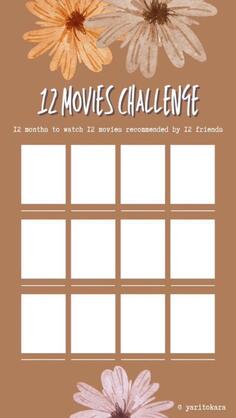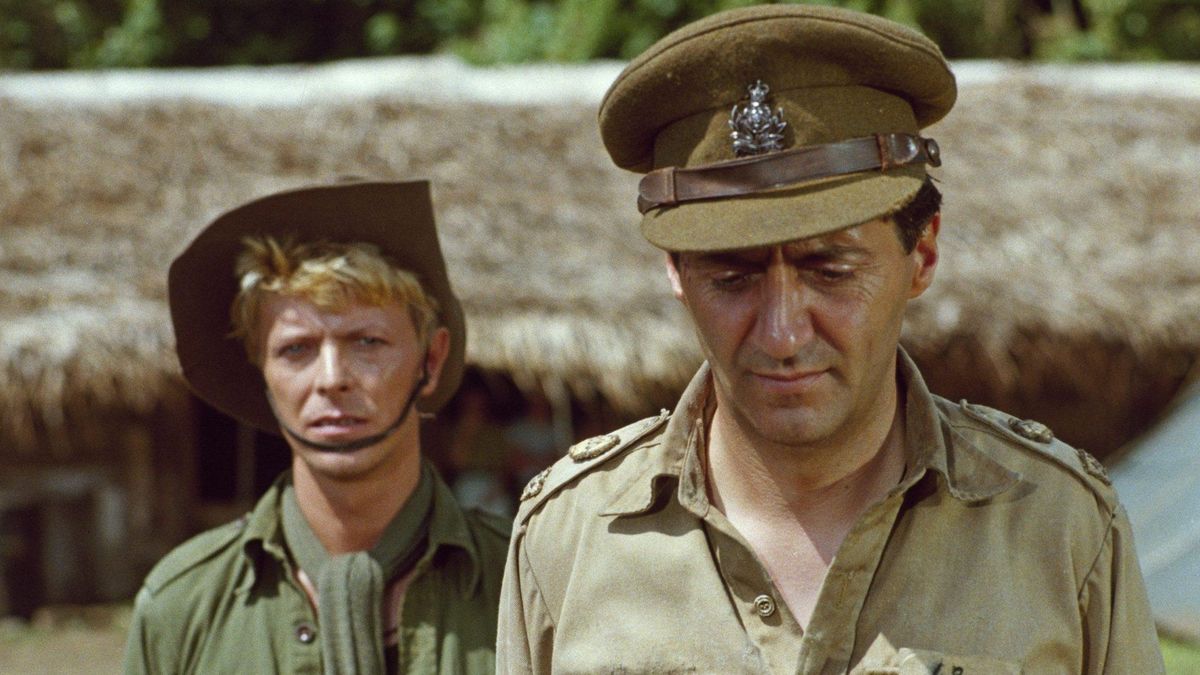|
by Julian Spivey  In December I saw something called the “12 Movies Challenge” on Facebook. The premise was that you would have 12 months to watch 12 movies recommended by 12 friends. I don’t often participate in such social media challenges but being a movie buff I felt this might be an interesting way to get out of my comfort zone a bit when it comes to watching movies. My Facebook buds gave me some films that I’ve been meaning to watch and I pretty much front-loaded those on the list – though not explicitly stated in the challenge rules I am opting to watch one film a month. A Best Picture winner like “Out of Africa” is an obvious choice for me to get to at some point – that point is now going to be March of this year. But there are certain movies I’m not really looking forward to all that much – I’m looking at you “The Ghost and Mr. Chicken,” my August selection. Then there’s the acclaimed stuff that isn’t really up my alley like the anime feature “Spirited Away,” which I’ve scheduled for November. That will truly be me getting out of my comfort zone. Here are the 12 movies recommended to me and the months I’ve assigned myself to watch them: January: “Merry Christmas, Mr. Lawrence” (1983) February: “Till” (2022) March: “Out of Africa” (1985) April: “The Devil Wears Prada” (2006) May: “Legally Blonde” (2001) June: “The Birdcage” (1996) July: “Morning Glory” (2010) August: “The Ghost and Mr. Chicken” (1966) September: “Pan’s Labyrinth” (2006) October: “Rocky Horror Picture Show” (1975) November: “Spirited Away” (2001) December: “The Last Laugh” (1924) My first choice for the year was Japanese director Nagisa Oshima’s 1983 prisoner of war film “Merry Christmas, Mr. Lawrence,” which was recommended to me by my old college buddy and fellow classic film lover Will Hehemann. The craziest thing about this particular recommendation is I had just literally DVR’d it off Turner Classic Movies right before Will recommended it. So, you could certainly say this is one of the films I was interested in seeing beforehand.
It is a bit out of my comfort zone though. It’s an international film, half told in subtitles, by a Japanese director I’d never experienced before. The only other Japanese film I’ve ever seen was Akira Kurosawa’s 1950 classic “Rashomon,” even though I enjoyed it, it was done so in a college course, so it was not exactly hand-picked. I quite enjoyed “Merry Christmas, Mr. Lawrence,” which stars David Bowie and Tom Conti as English P.O.W.’s Jack Celliers and John Lawrence. Ryuichi Sakamoto plays the P.O.W. camp’s commander Captain Yonoi, who adheres to the bushido samurai code of morals, and his second-in-command Sgt. Gengo Hara, who’s more of a brute, is played by Takeshi Kitano. Much has been made – both good and bad – about the differing acting styles of the cast with the English actors being more naturalistic and the Japanese actors being more “overwrought” (that’s critic Roger Ebert’s word). Ebert felt the dualistic acting styles undermined the film and came off odd. I don’t think so. But, I also don’t think that the difference in acting styles gives the film a “dreamlike state,” as TCM host Alicia Malone said while introducing the film. What I think the difference in acting styles does bring to the film is the exact feel that it should of a culture clash between these British soldiers and their Japanese captors. Being trapped in a foreign land with a completely different culture of people who barely understand your language and ways must be terrifying as hell. “Merry Christmas, Mr. Lawrence” captures this feeling well. Bowie is billed first of the cast, which makes sense as he was one of the biggest stars in the world at the time and wasn’t a rookie when it came to acting. But, the performance that immediately struck my interest and remained that way for the entire runtime was that of Conti’s Mr. Lawrence. Lawrence had spent time in Japan before the war and has immersed himself in the language and customs of the country. He’s the one guy in the camp who understands the Japanese and because of this has more respect for his captors than his comrades. He somewhat befriends Hara and Yonoi, both of whom have respect for him, but also show they don’t mind having to kill him if he crosses a line. Conti’s performance is just so believable as a man put in a horrible situation and using his extensive knowledge to try to make things better for himself and the others in the camp. It’s heroic without trying to be. Whereas Bowie’s Celliers is also heroic but in a more rebellious, showy way. Some other really great things about “Merry Christmas, Mr. Lawrence” are the before its time homoeroticism between Yonoi and Celliers that I’m not sure would’ve flown had this been a Hollywood product in the early ‘80s and I really did appreciate the film’s coda between Lawrence and Hara, even if some reviews I’ve read feel this scene to be unnecessary. But speaking of things unnecessary, the one point of the film where I found myself looking at the runtime or not being completely invested was the flashback with Celliers and his younger brother. But, I still find myself days later wondering if the film would work without it because it’s this moment in Celliers’ life that plays such a major role in his character’s finale. “Merry Christmas, Mr. Lawrence” isn’t an often feature on TCM, so if you’re interested in watching it too (and you should!) you can stream it on Hulu and The Criterion Channel.
0 Comments
Leave a Reply. |
Archives
July 2024
|
